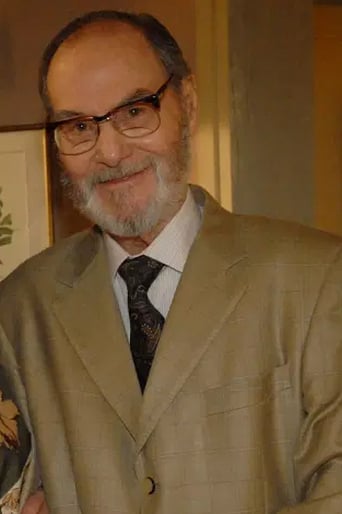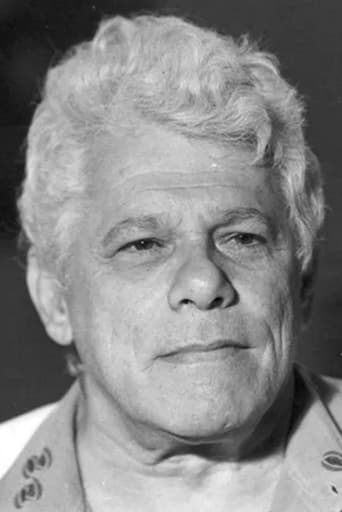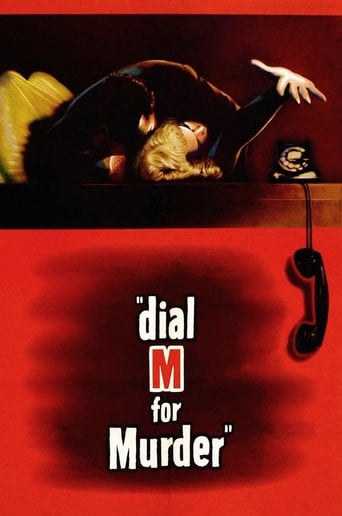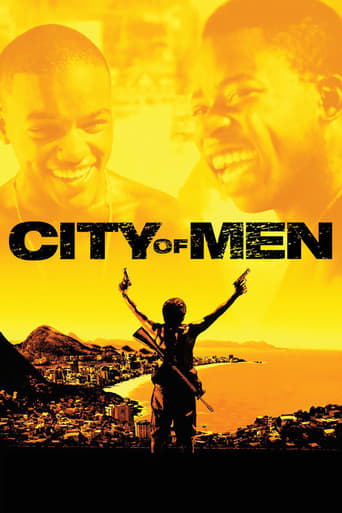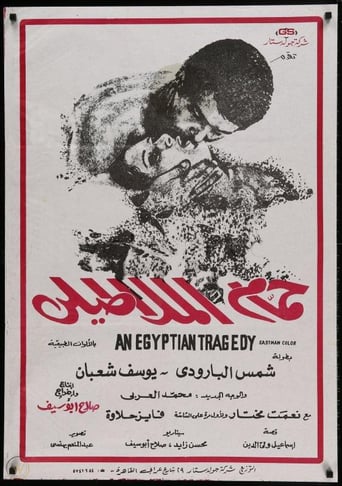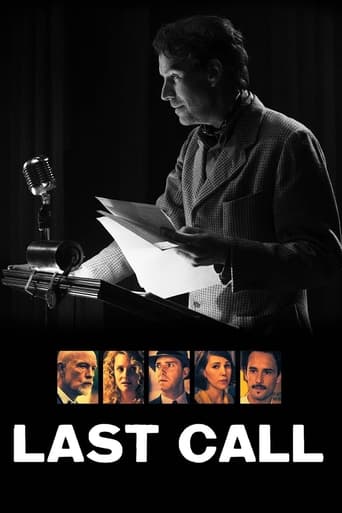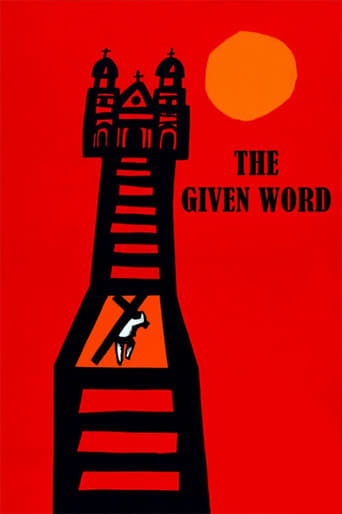
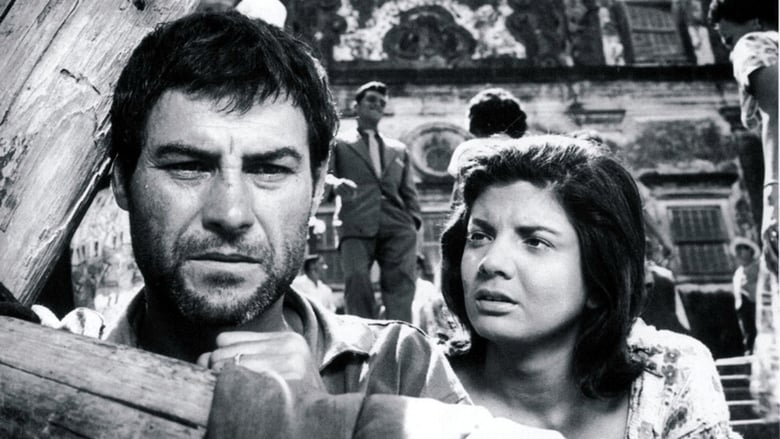
The Given Word (1962)
Zé is a very poor man whose most prized possession is his donkey. When his donkey falls terminally ill, Zé makes a promise to Saint Bárbara: If his donkey recovers, he will carry a cross - like Jesus - all the way from his city to Saint Bárbara's church, in the state capital. Upon the recovery of his donkey, Zé leaves on his journey. He makes it to the church, but the priest refuses to accept the cross once he discovers the context of Zé's promise.
Watch Trailer
Cast


Similar titles
Reviews
I found this Brazilian film included in the book 1001 Movies You Must See Before You Die, it is based on a famous stage play, it sounded like an interesting story, and was well rated by critics, so I looked forward to trying it. Basically Zé do Burro (Leonardo Villar) is a landowner from Nordeste, he has only one worldly possession, his best friend, a donkey named Nicholas, who he considers to have a soul. One day, the donkey is seriously wounded and falls deathly ill, out of despair, during a Candomblé session, dedicated to the goddess Yansan, Zé vows to carry a cross as large as Christ's, to the altar of the Saint Bárbara Church in Salvador, Bahia. After his donkey does recover from his illness, Zé builds a large cross with his own hands and tools, and begins his journey on foot to Bahia, accompanied by his wife Rosa (Glória Menezes). Zé arrives outside the steps of the church, which is closed, he is forced to wait for it to open, local pimp Bonitão (Geraldo Del Rey) is the only person to come and greet them, he offers to take Rosa to a small hotel, while Zé keeps his promises and stays with the cross. The local priest Father Olavo (Dionísio Azevedo) greets Zé on the steps, he is surprised but satisfied with the faith shown by him, until the detail that the promise had been done in a Candomblé session comes up in conversation. The priest berates Zé for impiety, believing his pledge and reasons behind it are "pagan", and forbids him from entering the church, soon many people attempt to manipulate the innocent and naïve Zé. The local Candomblé worshippers want to use him as a leader against the discrimination they suffer from the Roman Catholic Church, and sensationalist newspapers transform his promise to give away his land into a "communist". A crowd surrounds the church steps, the police are called by the zealots, when Zé tries to force the door to the church using the cross as a battering-ram, they order him to leave, but he faces up to them. Then a brawl breaks out, a gunshot is heard, the crowd cease fighting when they see that it is Zé who has been shot by the police, to prevent his way into the church. Zé-do-Burro lies dead by his cross, it's then that the black community, Candomblé worshippers, take his body, put him on the cross, and carry him inside the church to the altar of his favourite saint, they are unopposed by the priest or anyone. Also starring Norma Bengell as Marly, the prostitute, Othon Bastos as the Reporter and Antônio Pitanga as Coca, the capoeira player. This black-and-white picture is a really powerful story, a simple man making a religious vow who will not rest until it is done, having to contend with the impoverished people questioning whether his intentions are truly for God, as well as corruption and political issues, and the hounding of the media, a brilliantly provocative, fascinating and gripping drama. It was nominated the Oscar for Best Foreign Language Film (the Brazilian and South American film to be nominated). Very good!
A shame such an important movie has no poster here on IMDb. I wanted to add the one that is used on Wikipedia, but I would have to pay to do that. Strange.Anyway, if you are critical of religion fanaticism, then you must see this movie! It shows what can become of fanatic people, how lack of education plays an important role in it, the arrogance of the church and the hypocrisy of our society.Zé do Burro (Joe of the Donkey) has a soul of a child. He is a good guy, but extremely naive at the same time. His naivety is shamelessly exploited and people cruelly distort his good intentions, making an evil person out of him, when all he wanted was to do good.The movie won the Golden Palm in Cannes and other prizes. It's a classic. Dialogs are a bit theatrical (only if you understand Portuguese), but so they used to be that time. A movie that will get under your skin.
I didn't enjoy this movie. Yes, I understand it is a touching story and yes, I can understand the praises and awards it got (at least the reasons I do). But this is not a pleasant movie. It's harsh to see the one good guy being so badly misunderstood and mistreated. All this man, who is very poor and doesn't bother a soul, is trying to do is simply to keep a promise. What harm would that do to anyone? Despite being ignored the way he is, this man doesn't give up on his promise, such is his loyalty and determination. He tries everything but nothing works. The ending becomes increasingly harder and more depressing. In the end, he is killed and "crucified" like Jesus was.Leonardo Villar is superb in his acting as this nice, innocent man.There is some nice Brazilian cinematography and the huge church where the poor man wants to take the big and heavy cross is particularly beautiful.
Usually, the books are better than the movies that are made based on them. But, on this case, of O Pagador de Promessas, I really can't say which one is better. I'm starting to think the movie is better than the book, because the director, Anselmo Duarte, has added many things that weren't on the book, and they only contribute to improve the story. For example, the TV reporter and the people who go ask Zé do Burro for miracles. That part reminded me of that scene in Forrest Gump in which Forrest runs for three years and people start following him, thinking he was some kind of wise prophet, when he simply wanted to run. Actually, the whole story of O Pagador de Promessas is kind of that. A guy who only wants to pay his promise to a saint and is made a prophet, a "new Christ", a devil worshiper, and ends up dying because of some people's prejudice towards aspects that integrate their own culture.


